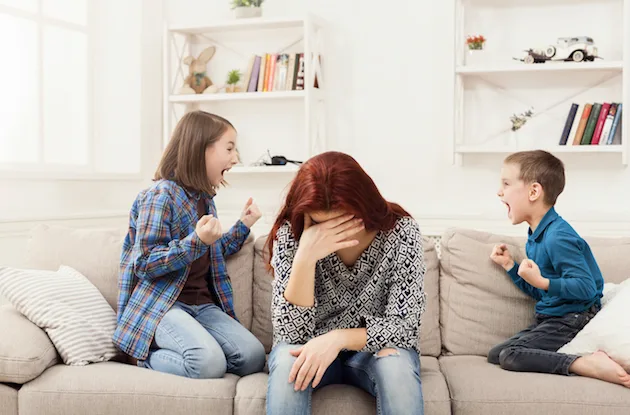When I found out I was pregnant with my first child, I immediately switched to decaffeinated coffee, something I had never done in my 12 working years. Traveling extensively for my job and working long hours were fatiguing enough; the first trimester only exacerbated the problem. But when I gave up my morning coffee, I was more than tired. I had headaches for a full week until my body finally finished adjusting (read: withdrawing) from the effects of the caffeine.
I was a 29-year-old healthy woman, and felt debilitated for eight days. Now as a parent, when I look at the growing trend of teens and pre-teens packing Starbucks coffee shops after school and grabbing caffeine-filled “energy drinks” to help them through the day, I shudder to think how this is impacting their growing brains. So it goes without saying that when my 8-year-old son, Jacob, started asking me if he could have some of my coffee, I was concerned. While I’ll only let him sip my decaffeinated cup every now and then, and am sure he’s drawn to its warm, creamy sweetness, I’m really trying to keep him from getting attached to the taste of coffee.
Coffee shops have seemingly replaced malt shops of the old days as the new, hip hangout. Kids as young as 11 gather in them to chat with friends and sip milk-, chocolate- and caramel-laced coffee drinks on a regular basis. And although the coffee market is growing in the pre-teen and teen groups as they move beyond soda, parents happy about the lower sugar intake need to also remember that caffeine comes with several unwelcome side-effects. Jitteriness, difficulty concentrating, increased heart rate, increased blood pressure, upset stomach and headaches are just a few. In fact, the one time I gave in to Jacob’s insistence and let him have his own, small cup of decaffeinated coffee (which still has a tiny bit of caffeine in it), he complained of a headache and upset stomach afterward. And of course, the reason so many of us drink coffee in the morning is to help us wake up. No surprise, then, that difficulty sleeping was cited as another of caffeine’s side-effects.
In 2002, the American Academy of Pediatrics (AAP) did a study on caffeine consumption and the sleep patterns of almost 200 seventh- eighth- and ninth-graders; they had the students keep a daily journal of their caffeine intake and their sleep times for two weeks. When the data was analyzed, “higher caffeine intake in general was associated with shorter nocturnal sleep duration, increased wake time after sleep onset, and increased daytime sleep.” The AAP concluded that caffeinated beverages had detectable pharmacologic effects, and suggested that limitation of the availability of caffeine to teenagers should be considered.
Other popular beverages among teens these days that I often read about are energy drinks, some of which have as much sugar and three times the caffeine of soda, and some experts say their popularity comes from their addictiveness. Nutritionists also warn that caffeine can cause hyperactivity and restlessness among children and is known to increase the excretion of calcium, a mineral much needed while bones are still growing. Yes, children are what they eat. But if what they drink is depleting minerals, or if energy drinks are being used as a substitute for food, parents need to be aware of their kids’ habits and sit down for a frank talk with them about what they are doing to their bodies.
I have to wonder what is driving the proliferation of these types of stimulant drinks among today’s youth. Is it the next step for those who started out as soda-drinking toddlers? A replacement stimulant for teens in the new, non-smoking, environmentally-aware generation? Or is it actually just a legal, affordable way to keep up with the growing demands on their hectic, overscheduled lives? As we pile more and more responsibility and pressure on our youth, urging them to volunteer, play sports, excel academically and become role models, can we really be surprised that they want to act more like the adults we’re pushing them to be? Or that they need stimulants to be able to keep up with such rigorous schedules? I’d actually be interested to see how many children with caffeine’s known symptoms have actually been diagnosed as having ADD or ADHD.
Perhaps all the data isn’t in yet, and not enough studies have been done on the effects of caffeine on growing bodies. But just because caffeine has not been declared dangerous, it is an addictive substance and its use is growing among young people. Being aware of its possible long-term impact, and educating our children about it, may help head off a new generation of sick and jittery adults down the line. After all, regardless of the substance — alcohol, shopping, cigarettes, caffeine — what parent wants their child to have an addiction?





















